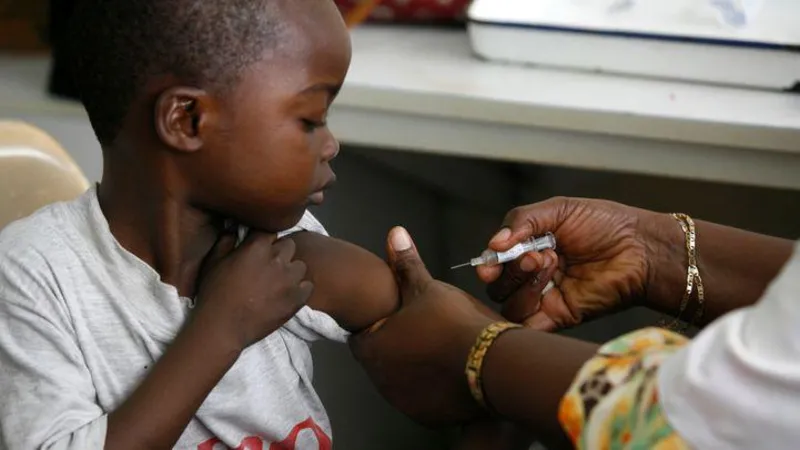Recently, the world marked Hepatitis Day. Dennis Gabriel in this write up revisits the anniversary’s activities aiming to draw greater attention to the quiet killer living with millions of its victims yet without knowing until it becomes too late.

As Nigeria joined the global community to mark World Hepatitis Day on July 28, awareness campaigns swept through the streets of Abuja, Nigeria’s capital city, from the bustling markets of Wuse to the busy districts of Garki and Nyanya. Health experts call it a “silent killer” — a disease that quietly destroys the liver, often going unnoticed until it’s too late.
A Silent Killer
“I used to think hepatitis was just like malaria until a neighbour died from liver failure,” said Hauwa Bello, a resident of Lugbe in Abuja. “It turned out to be hepatitis B, and he didn’t even know until it was too late.”

Her story mirrors the experiences of millions across Nigeria. According to the World Health Organization (WHO), the country has one of the highest hepatitis B and C prevalence rates in sub-Saharan Africa. Over 20 million Nigerians are estimated to be living with either virus, but most are unaware of their status.
A Disease in the Shadows
Hepatitis is an inflammation of the liver, most often caused by viral infections. There are five main types, namely, A, B, C, D, and E.
Hepatitis A and E are usually transmitted through contaminated food or water.

Hepatitis B, C, and D spread through contact with infected blood, unsterile medical equipment, sexual contact, or from mother to child during childbirth.
Hepatitis B can be prevented with a vaccine, while hepatitis C, though without a vaccine, is curable with direct-acting antivirals if caught early. Yet in Nigeria, access to screening, vaccination, and treatment remains limited, particularly in rural and underserved areas.
Barriers to Prevention and Treatment
Despite having the tools to combat hepatitis, several challenges persist:
- Low Public Awareness – Many Nigerians either haven’t heard of hepatitis or underestimate its risks.
- Cost of Testing and Treatment – Antiviral drugs are often unaffordable for low-income households.
- Stigma and Discrimination – Some sufferers lose jobs or face social exclusion after diagnosis.
- Weak Surveillance Systems – Inconsistent national data makes it difficult to track progress.
“People don’t want to talk about it,” said Samuel Ikenna, a university student in Abuja. “Someone I know lost her job after her employer found out she had hepatitis B.”
National Efforts and Global Goals
In 2021, the Federal Ministry of Health launched the National Viral Hepatitis Control Program, aiming to reduce new infections by 90% and deaths by 65% by 2030, in line with the WHO Global Hepatitis Strategy. The plan focuses on vaccination, blood and injection safety, harm reduction, widespread testing, and affordable treatment.

However, funding shortages, inadequate health infrastructure, and limited outreach threaten these targets. Civil society groups like Hepatitis Zero Nigeria and the Society for Gastroenterology and Hepatology in Nigeria (SOGHIN) have stepped in, offering free testing and awareness drives, such as those held in Abuja this July but these efforts often depend on short-term donor funding.
Stories of Loss and Survival
In Nyanya, Sani Mohammed recounted losing his brother last year to undiagnosed hepatitis B.
“We thought it was typhoid or something else,” he said. “By the time we found out, the liver was badly damaged. He died within weeks.”
In contrast, Christiana Akande, 29, shared a story of hope. Diagnosed with hepatitis B three years ago, she now manages her condition with medication and lifestyle changes.
“It’s not a death sentence if you catch it early,” she said. “But most people are too scared or unaware to go for testing.”
The Way Forward
Medical experts recommend:
Vaccinate newborns and healthcare workers against hepatitis B.
Expand free testing across all states, not just major cities.
Subsidize treatment for low-income households.
Launch nationwide awareness campaigns similar to those for HIV.
A public health consultant based in Abuja, Dr. Emmadi , stressed:
“Early diagnosis is the key. Hepatitis is preventable and treatable — but only if people know their risk and get tested.”
Conclusion
Hepatitis may operate in silence, but its impact is loud in the lives it claims. Awareness drives like those seen in Abuja are vital, but without sustained national action, millions will remain at risk.
The message is clear: hepatitis is preventable, treatable, and often curable but only if Nigeria invests in awareness, screening, vaccination, and treatment for all.


